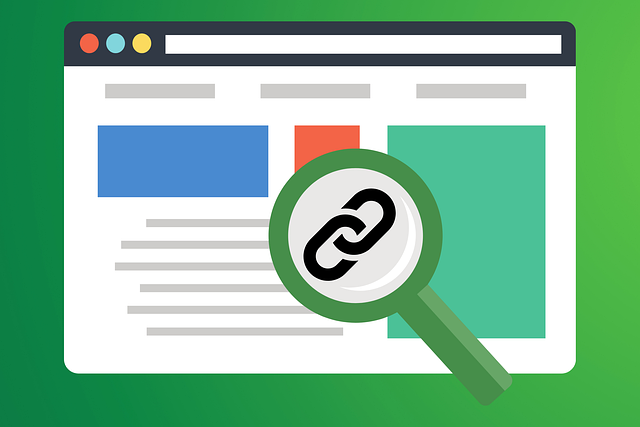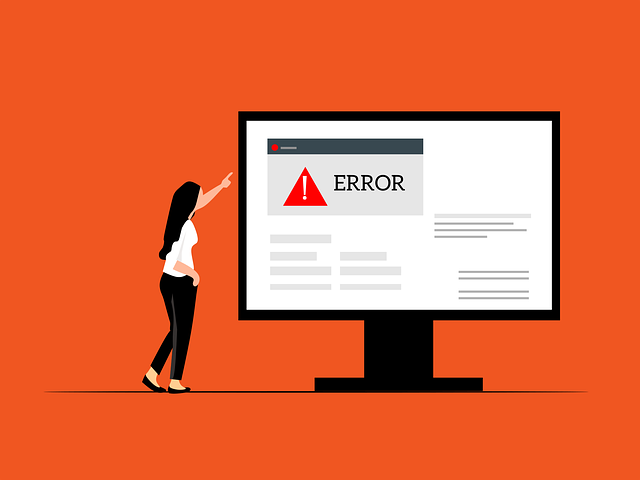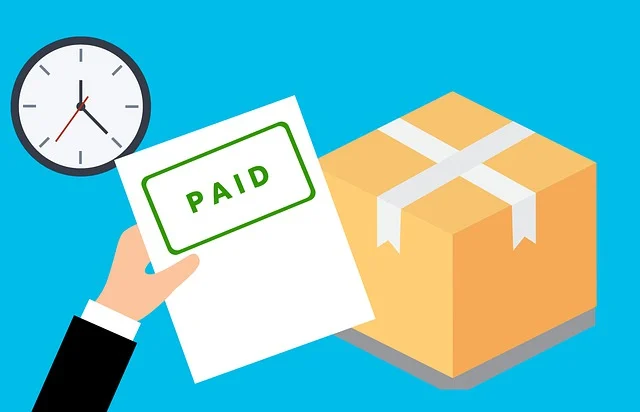Have you ever wondered why a few websites appear at the top of Google searches while others don’t? One of the biggest reasons is backlinks. These are connections pointing to your website from other websites, which indicates to search engines that your website is significant and trustworthy.

All these things will tell, ” link building, SEO backlinks, buy backlinks, backlink builder, quality backlinks, get backlinks for my website, free backlinks, buy high-quality backlinks, Will explain in detail.
But how can you get these backlinks? Should you try to get them for free or pay for them? What’s the easiest way to start, and what mistakes should you avoid?
Get SEO Backlinks
In this article, we’ll explain everything in simple steps. You’ll learn why backlinks matter, how to get them, and the best ways to make your site rank higher on Google. Let’s explore the world of backlinks and take your website to the next level!
We use these methods ourselves.
All the tips mentioned in the middle and at the end of the article are ones we use ourselves, and I strongly recommend following everything I’ve shared here. If you create backlinks, your site will rank on Google or other search engines.
What are backlinks, and how do they work?
Links referring to your website from other websites are known as backlinks. If you acquire backlinks relevant to your niche or category, they can significantly improve your Google ranking.

It’s important to note that most people purchase backlinks, as it’s rare to receive them for free. Therefore, buying backlinks is often necessary for enhancing your site’s authority.
Why You Should Build Backlinks
When creating a new website or blog, building backlinks is essential for ranking higher in Google search results. To achieve this, you must obtain backlinks from relevant and authoritative pages, ensuring your site gains visibility and authority on Google and other search engines.

How to Identify High-Quality Backlinks?
The quality of the link matters more than the quantity while creating backlinks. Reputable websites in your industry provide high-quality backlinks. They are more likely to increase the legitimacy of your website and bring in relevant traffic.
To identify these types of backlinks, look for websites with strong domain authority (DA) and established trust within your industry.
You should consider buying paid or free backlinks. I will provide you with all the information in this post. We’ll share essential tips for creating effective backlinks for your website or blog—insider strategies used by professional bloggers to build quality links.
How do I get backlinks?
How do I find backlinks to my website? Through this method, you can get backlinks to your website. If you read to the end of the article, I will explain in full detail how to start and what to do. I have explained everything at the end of the article, so you must read to the end of the article.

What Are the Benefits of Guest Blogging for Backlinks?
Guest blogging is not what it is today; it is a very old strategy that we use to build backlinks. All the big websites used to create backlinks through guest blogging and still do.
How to create backlinks step-by-step. Guest posting is one of the best strategies to get backlinks to your website. By contributing high-quality content to other blogs or websites in your niche, you can earn backlinks that improve your site’s authority.

Not only does guest blogging help you gain backlinks, but it also allows you to tap into the audience of the host site, which can increase your exposure and traffic.
What Are the Common Mistakes to Avoid When Building Backlinks?
When building backlinks, many website owners make critical mistakes that can hurt their SEO efforts. Some common pitfalls include:

- Purchasing low-quality backlinks from unreliable sources.
- Overloading your site with backlinks too quickly can trigger penalties from Google.
- Failing to provide content of a good caliber, is necessary to draw in natural backlinks. You may create a backlink profile that is healthier and more successful by avoiding these errors.
How to Use Social Media for Building Backlinks?
One effective strategy for creating backlinks is social media. Distributing your material on social media sites increases traffic and backlink opportunities. People are more inclined to connect to your content from their own websites or social media accounts when they think it is valuable. In addition, social signals can contribute to improving your search engine rankings.

How to Analyze Your Backlink Profile Using Tools Like Ahrefs and SEMrush?
Analyzing your backlink profile is essential to ensuring that your backlink strategy is working. You may monitor your backlink profile and spot growth prospects with the use of tools such as Ahrefs and SEMrush. They allow you to:

- Analyze the quality of your backlinks.
- Identify toxic or harmful links.
- Monitor your competitors’ backlinks and strategies.
Using these tools regularly can give you valuable insights and allow you to refine your backlink strategy for better SEO results.
What Are Some Effective Strategies for Broken Link Building?
Finding broken links on other websites and offering your material as a substitute is known as “broken link building.” This method is effective because it benefits both parties: the website owner gets rid of a broken link, and you gain a valuable backlink.

To start, you can use tools like Ahrefs or SEMrush to identify broken links on relevant websites. When you locate them, get in touch with the webmasters and propose your material as an alternative.
How to Get Backlinks for Your Website: A Complete Guide
Free Backlinks vs. Paid Backlinks
Many people wonder whether they should invest in free backlinks or paid backlinks. In this article, we’ll share expert insights and explain the key differences between the two.

Challenges for Free Backlinks
Building backlinks for free offers many benefits, but there are challenges too:
- Time Required: Getting free backlinks requires a lot of time, patience, and consistent effort. Strategies like guest blogging, social media sharing, and content collaboration require consistency and often produce delayed results.
- Competitive Landscape: In highly competitive niches, it can be difficult to stand out, as big brands often dominate. With so many competitors looking for quality backlinks, gaining visibility becomes a significant challenge.
Benefits of Paid Backlinks
Using paid backlinks can improve your site’s Google ranking, as high-authority backlinks from approved sites contribute to boosting your site’s credibility.

Competitive Edge
If you invest a small amount of money in creating backlinks for your site, you’ll see significant results. Your site will begin ranking higher on Google and other search engines, leading to an increase in organic traffic.
Challenges of Paid Backlinks
- High Costs: Acquiring high-quality paid backlinks can be expensive, especially when obtained from reputable websites with strong domain authority.
- Risk of Penalties: Paid backlinks can be considered a “black hat” SEO tactic if they violate Google’s guidelines. If found out, this can result in penalties that can significantly lower your search rankings.
How much do paid backlinks cost?
If you guys want to buy backlinks, it will cost you about three to four dollars. Most people charge about the same amount to give you backlinks. The better the side, the more special they will be. But I tell you that you should create a free backlink mix; do not get paid backlinks.
Does Google allow buying backlinks?
Google does not allow buying backlinks because it is against Google’s policy for you to pay money to an affiliate site to get backlinks.
Which Method Should You Use? White Hat or Black Hat?
When building backlinks for your website, it’s important to choose between “white hat” and “black hat” SEO techniques. I advocate white hat techniques because they follow Google’s guidelines, ensuring long-term success without the risk of penalties.

How to Get Backlinks for Your Website: Step-by-Step
You need to write great material if you want to get backlinks of superior quality. The better your content, the higher the chances of attracting valuable backlinks. Acquiring such backlinks will not only enhance your search rankings but also establish your authority in the field.
How to Start Guest Blogging
Guest blogging is a very powerful method. The article started here, where I gave you a little information about guest blogging, but now I have told you in great detail how you can build backlinks using guest blogging.

Find the Right Blogs to Guest Post On
The first step in guest blogging is finding the right websites where you can contribute your content. Look for websites that are in your niche and have a good amount of traffic. The more visitors a website has, the more exposure your content will get.
You can search for blogs using keywords related to your niche followed by terms like “accepting guest posts” or “writing for us.” For example, if you have a blog about fitness, search for “fitness blogs accepting guest posts” to find websites looking for contributors.
Step 2: Pitch Your Ideas
Once you’ve found a few websites, it’s time to pitch your guest post ideas. Make sure to tailor your pitch to the blog’s audience. Start by introducing yourself and briefly explaining why you think your content would be valuable to their readers. Be clear about how your article will solve a problem or offer useful insights for their audience.
Make sure your pitch is friendly and to the point. If you’re unsure how to start, a simple introduction like, “Hi, my name is [Your Name], and I run a blog about [Your Niche]. I’ve been following your blog and would love to contribute a guest post on [Topic Idea]. I believe it will benefit your readers because [reason].” This simple approach helps the blogger understand your value right away.
Step 3: Write High-Quality Content
When your pitch is accepted, the next step is writing the article. The key here is to provide high-quality, useful content that aligns with the blog’s tone and audience. Your article should be easy to understand, using simple words that anyone can read without struggling. Avoid complicated jargon or long, difficult sentences. The goal is to engage readers with content that is informative and enjoyable.
Keep the tone friendly and conversational, just like you’re talking to a friend. For example, instead of writing “One should avoid mistakes when creating a blog post,” you can say, “If you’re starting a blog post, it’s best to avoid common mistakes.” This makes your writing sound more natural and approachable.
Do not forget to include a backlink to your website in the article, generally in the content itself (if applicable) or in the author bio section. This backlink will help improve your website’s SEO and drive traffic to your site.
Step 4: Submit and Promote Your Post
After writing your guest post, review it carefully and make sure it’s free from errors. Once everything looks good, submit it to the website for approval. If the blog owner requires any changes, be open to their suggestions and make the adjustments quickly.
Once your post is published, don’t forget to promote it on your social media and website. Share the guest post with your audience and engage with readers who comment on the post. This not only helps bring attention to the post but also shows the blog owner that you are invested in promoting your content.
Step 5: Build Relationships with Other Bloggers
Guest posting is one of the best ways to link with other bloggers in your niche. After your post is published, stay in touch with the blog owner. Leave comments on their other posts, share their content on social media, or even collaborate on future projects. Building these relationships can open the door to more guest posting opportunities down the line.
Guest blogging is not only about getting backlinks; it’s also about growing your online presence and establishing yourself as an expert in your field. The more you guest post on authoritative websites, the more credibility you build for your blog.
Step 6: Track Your Results
After you’ve published a few guest posts, it’s time to track your results. Check your website’s traffic to see if there has been an increase in visitors from the guest post. You can use tools like Google Analytics to see where your traffic is coming from and which posts are driving the most visitors.
Additionally, monitor how your backlinks are affecting your website’s SEO. For your goal keywords, are you ranking higher? Are search engines bringing you more visitors? By tracking your results, you can tweak your guest blogging strategy to make it more effective.
Social media is one of the most effective and accessible ways to build backlinks for your website. While social media links themselves are generally nofollow (meaning they don’t directly pass SEO value like a regular backlink), they play a crucial role in your backlink strategy in several indirect ways.
How to Use Social Media for Building Backlinks?
1. Increased Content Exposure
When you share your content on social media, you expose it to a much larger audience, which increases the likelihood that others will see, engage with, and share it. If your content resonates with users, they might link back to it from their own websites, blogs, or social media profiles. The more exposure your content gets, the more backlinks you’ll have the potential to gain.

For example, when a blogger shares your post on Twitter or Facebook, it may get noticed by other influencers in your industry who are looking for content to link to. It creates a cycle where your content gets more views, more shares, and ultimately, more backlinks.
2. Building Relationships with Influencers
Social media provides a platform for building relationships with influencers and key figures within your niche. These relationships are valuable because influencers have large, engaged audiences who trust their opinions. By sharing their content or commenting on their posts, you can foster relationships that may lead to them sharing your content or linking to your website.
For instance, you could engage with an influencer on Instagram by sharing their content and tagging them. Over time, if you build a rapport with them, they may see your content as valuable enough to link to from their website or social media, which would improve your backlink profile.
3. Leveraging Content Sharing Communities
There are specific communities on social media platforms like Reddit, Quora, Pinterest, and LinkedIn where users actively share content related to particular topics. By participating in these communities and sharing your content, you can increase its visibility and improve your chances of earning backlinks from authoritative sources in your niche.
For example, on Reddit, there are subreddits focused on SEO, digital marketing, and blogging. By sharing your content in these relevant subreddits and engaging with users’ comments, you increase the likelihood of earning a backlink from someone who finds your content valuable.
4. Encouraging User-Generated Content (UGC)
Another way social media can help with backlink building is by encouraging user-generated content (UGC). When users post content about your brand or website on their social media profiles, they often link back to your website. This can be in the form of testimonials, product reviews, or user experiences. By promoting and sharing UGC, you create a community of engaged users who are more likely to link to your content.
For example, encouraging customers to share their experiences with your product on Instagram and tag your brand can help generate valuable backlinks when they link back to your website or product page.
5. Social Signals and SEO
Though social signals (such as likes, shares, and comments) are not a direct ranking factor in Google’s algorithm, they do contribute to the overall authority and relevance of your website. The more social engagement your content receives, the more likely it is that other websites will take notice and link to it. High social engagement signals that your content is popular and trustworthy, which increases its chances of ranking higher in search results.
In addition, search engines use social signals as a signal of authority and relevance. When your content is shared across platforms, it often appears in search results, which leads to even more visibility and potential backlinks. This creates a positive feedback loop where social media activity indirectly helps improve your SEO rankings by bringing more visibility to your content.
6. Optimizing Your Social Media Profiles
Make sure your social media profiles themselves are optimized with relevant keywords and links back to your website. While these links might not pass SEO value directly, they can help users discover your site and increase traffic. This is especially true for platforms like LinkedIn and Pinterest, where profiles and posts can appear in search engine results.
For example, by regularly sharing blog posts and including your website link in your social media bios, you ensure that your audience is constantly exposed to opportunities to visit your site and potentially link to it in the future.
How to Leverage Broken Link Building to Gain Backlinks
What is Broken Link Building?
Broken link building is a strategy where you find broken or “dead” links on websites and then reach out to the site owner, suggesting your content as a replacement.
This method works because website owners want to maintain a good user experience, and broken links can negatively affect their site’s credibility.

When you offer a relevant, high-quality piece of content as a substitute for a broken link, you help them improve their site, and in return, you gain a valuable backlink to your website.
Why Is Broken Link Building Effective?
- Helps Website Owners: Broken links can hurt the SEO of a website. By offering to replace them with your content, you’re helping site owners maintain their credibility and improve the user experience.
- Earn High-Quality Backlinks: You’re targeting authoritative websites in your niche, and securing a backlink from these sites can boost your SEO ranking.
- Scalable and Low-Cost: Unlike paid backlinks, broken link building doesn’t require a financial investment. It just takes time, patience, and some research to find relevant broken links.
How to Find Broken Links for Broken Link Building
Finding broken links involves some research and the use of specific tools. Here are the steps:
- Use SEO Tools: Tools like Ahrefs, SEMrush, or Broken Link Checker are great for identifying broken links on any website. These tools will crawl the site and provide a list of links that are no longer working.
- Focus on Relevant Websites: Find websites within your niche or industry that have content similar to yours. Look for pages that contain external links, particularly those that may lead to outdated or broken URLs.
- Check for Relevance: When you find a broken link, make sure your content is relevant as a replacement. Your content should match the original link’s subject matter to make it an attractive substitute for the site owner.
How to Reach Out to Website Owners
Once you’ve identified a broken link and confirmed your content as a suitable replacement, it’s time to contact the website owner. The following advice can help the promotion of your email be successful:
- Personalize Your Email: Don’t send generic messages. Show that you have done your homework and comprehend the site’s information by personalizing your email.
- Be Polite and Helpful: Position yourself as someone who’s genuinely trying to help. Let the site owner know you’ve found a broken link and offer your content as a fix. Keep the tone professional and respectful.
- Include a Link to Your Content: Be sure to include a direct link to your content that is relevant to the broken link, explaining why it would be a good fit as a replacement.
Best Practices for Broken Link Building
- Target Relevant Content: The more relevant your content is to the broken link, the higher the chances that the site owner will accept your suggestion. This ensures the link makes sense contextually and improves the overall value for both parties.
- Quality Over Quantity: Pay focus on trustworthy sites that are relevant to your niche. Many low-quality backlinks can be valuable just a few high-quality ones from reputable websites.
- Track Your Results: Use tools like Google Analytics to track the impact of the backlinks you’ve acquired through broken link building. Over time, tracking your success can help you improve your approach.
Examples of Broken Link Building in Action
For instance, let’s say you run a website about content marketing. You use a tool like Ahrefs to find a popular content marketing blog that has a broken link to an outdated guide about “SEO Best Practices.” You happen to have a recent, high-quality article on the same topic, which is an excellent replacement for that broken link. By reaching out to the blog owner and offering your guide as a fix, you not only help the site owner maintain their site but also gain a valuable backlink in the process.
Common Mistakes to Avoid When Building Backlinks
To effectively build backlinks, steer clear of these common pitfalls:
- Purchasing low-quality backlinks from unreliable sources.
- Overloading your site with backlinks too quickly can harm your SEO efforts.
- Neglecting the creation of high-quality content is essential for attracting natural backlinks.
Tools to Help You Build Backlinks
Using the right tools can streamline the backlink-building process and make it more effective. Here are some top recommendations:
- Ahrefs: Ideal for identifying link opportunities and analyzing competitors.
- SEMrush: Perfect for tracking your backlink profile and progress.
- Moz Link Explorer: Excellent for checking domain authority and evaluating link quality.
Case Studies
These are the methods I’ve shared with you in this article. Even professional-level bloggers follow these strategies, and new bloggers starting also adopt these same methods. By using these techniques to create backlinks, you can reap numerous benefits, as I’ve already explained. Let me also share that we implement these methods ourselves to achieve success.
Conclusion
Building a strong backlink profile is a gradual process, but the rewards are undeniable. By focusing on high-quality content, leveraging strategies such as guest blogging and broken link building, and using the right tools to monitor your progress, you can significantly improve your SEO rankings.
Call to Action:
Ready to boost your website’s ranking and drive more traffic? Start building quality backlinks today! Whether through guest blogging, social media sharing, or using powerful tools, these strategies will strengthen your site’s authority.
Don’t wait—apply these methods now and watch your Google rankings rise! Need more help? Dive into our full guide for expert tips to supercharge your backlink strategy.
Faqs
How can I start building backlinks for my website?
You can start by creating high-quality content, engaging in guest blogging, sharing on social media, and contacting other websites for link collaborations.
Should I pay for backlinks or try to get them for free?
Both methods have their pros and cons. Free backlinks require more time and effort, while paid backlinks can provide quicker results if obtained from reliable, high-authority websites.
What are high-quality backlinks, and how can I find them?
High-quality backlinks come from reputable, niche-relevant websites with strong domain authority. Tools like Ahrefs or SEMrush can help identify these opportunities.
Tips and Tricks
The Future of SEO in 2025: How to Stay Ahead as an Expert
Google AdSense Fast Approval: Monetize Your Blog Quickly
19 Tips on How to Increase Engagement on Blog Posts
How do I get paid traffic to my website?
Which is better for AdSense: Blogger or WordPress
My name is M. Ali Sher. I am from Pakistan. I work on blogging, SEO, WordPress, and many other topics. I have about two years of experience in this field. All the information on this website related to blogging, SEO, WordPress, and Earning Money online is my personal experience. I have published many tools on this site, and some are yet to be released. They will also be available on this website soon. I have been working in blogging and SEO for a long time and as I told you, I have a lot of knowledge about it, so I want to share my knowledge with you. So that you guys can also start earning money from blogging and SEO.


